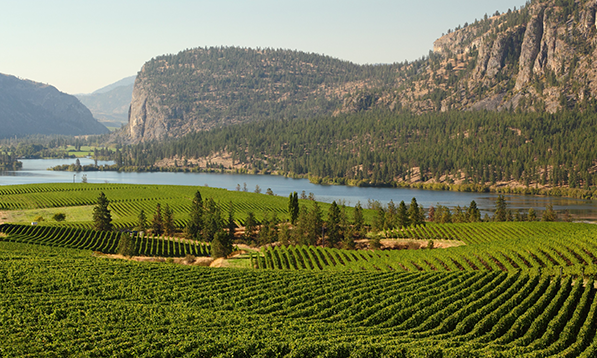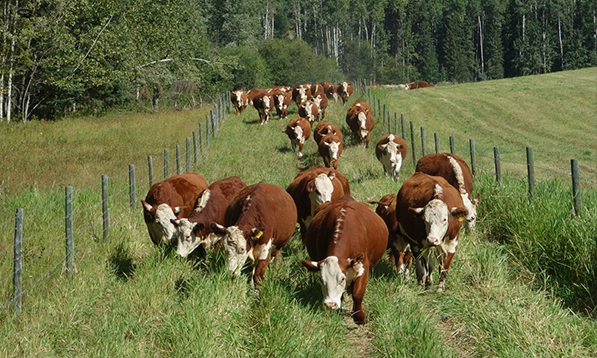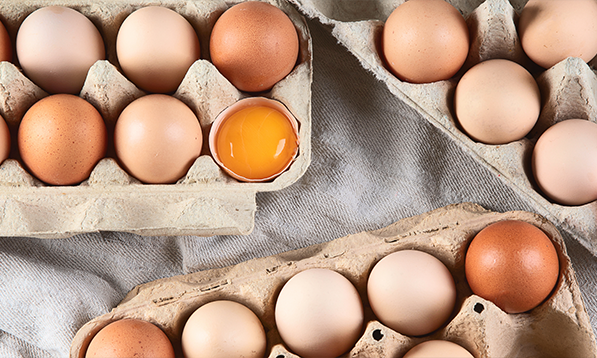
Meet one of BC’s youngest poultry farmers: Jared DeDood
March 5, 2020
What’s packed with protein, and goes with just about anything? Eggs! You might eat them regularly, but how much do you know about how they are produced? This month, we caught up with Jared DeDood, who at 27 is one of BC’s youngest poultry farmers. Read on to learn what’s involved in raising the eggs you buy at the grocery store.
WHL: How did you become a poultry farmer?
Jared DeDood: I’m a third-generation dairy farmer. In 2017, an opportunity came up with B.C. Egg’s New Producer Program. The program uses a lottery system to provide opportunities for new farmers to enter the egg sector in B.C. I was one of the successful applicants in 2017 and that's when the dream started.
WHL: Can you tell us about your chickens and the eggs they produce?
JD: Currently we have 3,700 hens of the Lohmann breed (brown feathered chicken). We produce certified organic brown eggs. I receive my birds at 18 weeks of age. They come into a fresh, clean barn and spend some time learning where to lay eggs, where to get feed and water, and where to sleep. Right around 19 weeks of age, is when the birds start to lay eggs. I ship my eggs every Sunday to the grading station, and then they're on the shelves in grocery stores within seven to twelve days.
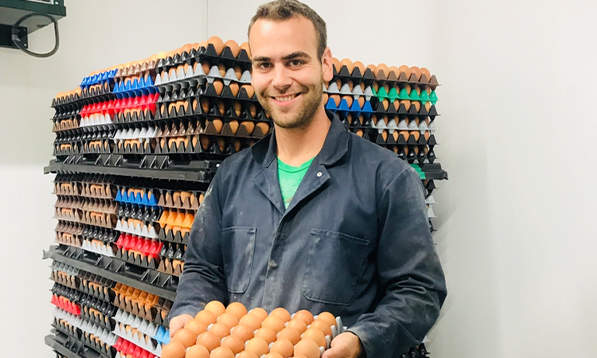
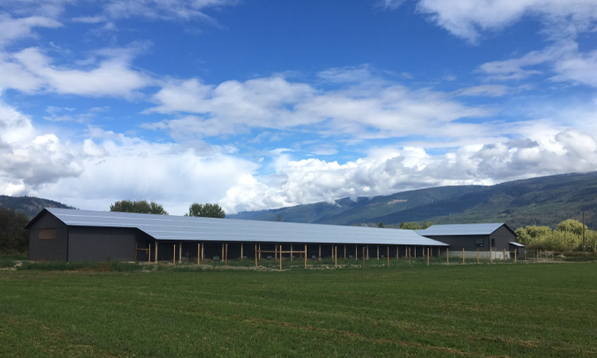
WHL: Can you describe your farm and housing system for our readers?
JD: I was one of the first farmers in the Okanagan to install a Big Dutchman aviary system. It's a three-tier setup. The bottom tier is where the hens get their feed and water. The middle layer has their laying nests where they lay their eggs. The laying nests open and close based on a computer which I program. It opens up about two hours before the lights turn on in the barn in the morning. The hens are usually done laying their eggs by about noon or so. And then at night the doors to the nests close two hours before the lights go out. This helps to keep manure out of the nests, which also means cleaner hens and cleaner eggs. The third tier has more feed and water and more perching. This is where the birds prefer to sleep (perched up high away from the ground). In the summer, my birds go outside a lot, so I have a big pasture for them and they have little doors that they get to go out of. They absolutely love it and we try our best to get them outside every day. However, if the conditions aren’t good (e.g. too cold or too wet) the hens prefer to stay in the barn where they are comfortable and protected.
WHL: What role does technology play in caring for your chickens?
JD: There's a main computer in my barn and that's the brains of it all, but I also have an app on my phone that alerts me if anything isn’t operating the way it should. I can see humidity, outside temperatures, and I know if my birds are going through something. Along with my camera systems, I can view what's happening in the barn at all times and always be in the loop no matter where I am.
WHL: What does an average day look like for you on the farm?
JB: Well, I'm not just an egg farmer -- I'm also a dairy farmer. My day starts at 6 a.m. I try to give my hens ‘privacy’ and don't like to be in the barn when they're laying. So my first couple hours of the day I'm working on the dairy farm and I'm usually in my chicken barn around 8:30 am. There, I change into my barn clothes. Biosecurity is really important to me, since it helps prevent my birds from getting sick or exposed to a disease from outside the farm. Anyone who enters the barn follows a set of biosecurity procedures. This means I completely change my clothes. I put on different coveralls, I change my shoes, everything. Then we check how all the birds are doing. We walk around the whole barn checking for the basics - feed and water. You listen. You wouldn't believe how much just listening helps. You can tell if something is off in the barn right away. In the afternoon we pack eggs. This usually takes place anytime from 2 to 4 o’clock. That takes me about an hour and then the eggs are put in a cooler with proper humidity right away. I come back to the barn around 6 p.m. I'll do a walk through and make sure all the birds are settled in and good for the night. Then I do paperwork. We record daily paperwork on a bunch of different things: temperatures, egg production, barn temperatures, humidity and so on.
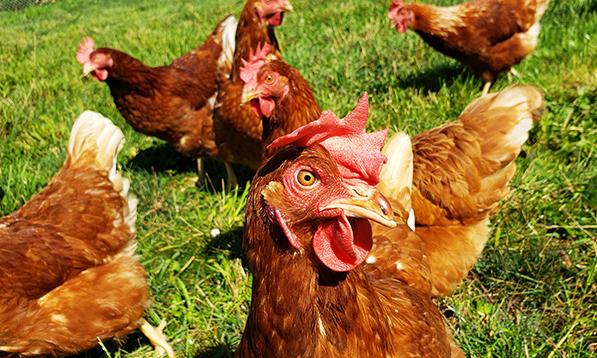
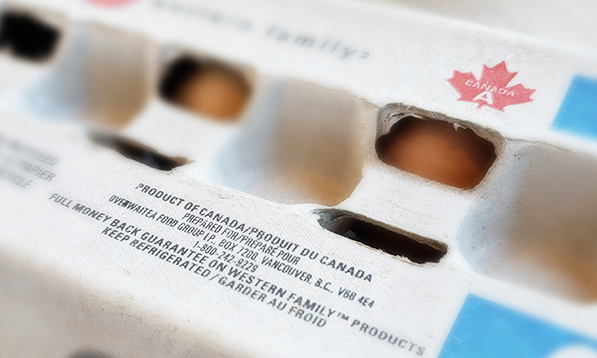
If you live in Vancouver or the Lower Mainland, where 80% of B.C. egg farms are found, the odds are good that you’re buying eggs that were laid pretty close to home.
WHL: Are there any certification programs that you participate in?
JD: Yes. We are growing birds and we are in charge of animals, so we have to be at the top of our game at all times. Every registered egg farmer in Canada participates in Start Clean Stay Clean - it's an on-farm food safety program that makes sure we are meeting standards for egg storage, cleanliness, air quality, feed and record keeping. There is also a national Animal Care Program that we participate in which sets excellent animal care standards and ensures that they are all met. In that program, there is SE (salmonella) testing where a representative from BC Egg comes and swabs every part of our barn. I'm a specialty egg producer, so we have a specialty audit too. “Specialty” includes organic, free range, and free run chickens. This program monitors the outdoor pasture that the hens use to make sure they have an adequate amount of space and that they’re protected from other wildlife. And then my favourite one is my organic products certification. You should see the paperwork that it requires! A third-party auditor checks to make sure that we are feeding the hens certified organic feed, never giving them antibiotics and that they have enough space and access to the outdoors.
WHL: Many of our readers are getting ready to celebrate Nowruz, Passover and Easter -- all holidays where eggs have a starring role! Can you talk to us about what to look for when getting eggs from the grocery store?
JB: Look for the Canada Grade A egg symbol on your egg cartons, and make sure it says “Product of Canada.” In general, those eggs are from your province. We make it easy for you to know that you're buying a Canadian product that's coming from a family farm in British Columbia. If you live in Vancouver or the Lower Mainland, where 80% of B.C. egg farms are found, the odds are good that you’re buying eggs that were laid pretty close to home.
Looking for some new ideas on how to use local B.C. eggs? Head over to our recipe finder for inspiration! While you’re at it, make sure to check out our profiles to meet other B.C. egg farmers.
